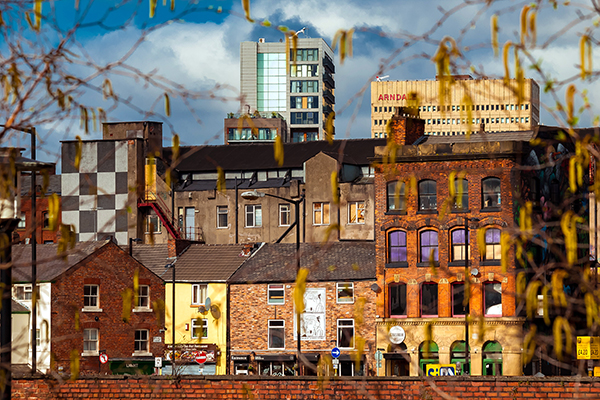This article original appeared in Third Force News on Thursday 4 April 2013. For the original version please click here.
Last month I took part in a session of SCVO’s Gathering about public service reform and citizen engagement. What struck me as an English outsider is that public service reform in Scotland is in danger of going off the boil. Christie set the direction of travel, but the pace has been slow. Communities are not being trusted and empowered fast enough and the role of the voluntary sector has been underdeveloped.
This may have something to do with the impending referendum in Scotland and the desire not to open up battles that go to the heart of a culture of municipal authority and statism in public services. But it’s also a symptom of a wider malaise across the UK political economy – an inability on the part of politicians to engage citizens in an honest debate about the full extent of the social and economic challenges we face.
What seemed a crisis following the banking collapse in 2008, is now the new norm – a decade of austerity, low to no growth, declining living standards and the rising costs of an ageing society. Yet public policy carries on as if not much has changed, as if growth will inevitably return and with it the funding to run centralised public services that can meet all the demands of the future.
In fact, the current system is already stretched to breaking point. As the Christie report pointed out, it’s not delivering the social outcomes we aspire to on equality, public health and education. And that’s before you add in the toxic mix of the longest period of cuts on record, with rapidly escalating demand. Little wonder that Councils in England have dubbed the diagram which charts these pressures as the ‘graph of doom’.
All of which points to the need to develop a new approach to social and economic growth, that starts from citizens and communities and their assets and capabilities. The 2020 Public Services Commission called this approach social productivity. It is about mobilising social and citizen resource, and improving the quality of the relationship between citizens and services – to develop a co-operative approach to public services.
At the heart of this is social citizenship. The notion that that ‘society is good for your health’, is actually based on a whole body of recent research about how the brain functions, how we make decisions, and how societies and economies operate. When I was a student the old argument was about whether humans are co-operative or competitive. The way in which you answered this question determined your politics.
Now there is a remarkable consensus across much of neuroscience, social psychology and behavioural economics that we humans are social animals. We are shaped by evolution, by the social networks to which we belong, by habits, by social and cultural norms and we are more prone to rationalising than to pure reason. This puts the boot on the other foot, so far as the wider debate about human nature and the organisation of society is concerned. It’s now rational economic man, which is a nice idea that will never work in practice.
The must read book in politics last year was New York Times’ columnist David Brooks bestseller “The Social Animal”. This followed hot on the heels of Thaler and Sunstein’s book “Nudge” which popularised the latest findings from behavioural economics, to undermine much of the foundations of neo-liberal public choice theory. And before that there was the groundbreaking work of Robert Puttnam in “Bowling alone” which linked the decline of social capital through group and community participation to the collapse in social economic trust. For long in the tooth social scientists, this must feel like 1970s déjà vu. Sociology is in fashion, and beards are back. Next we will be watching Open University repeats on Gold.
But public policy has been slow to respond to the implications of this new scientific orthodoxy. New Public Management has given us a huge array of data about service performance, but very little useful information about how communities operate, how social norms are formed, and why some communities are more resilient than others. The focus should now be on understanding social networks within communities – identifying the connectors and bridge-builders and the institutions that are most effective at supporting social capital. These community hubs should be the building blocks for public services of the future, with local groups commissioning and sometimes running their own services.
The major challenges in society and the most significant drivers of demand for public services are the ones which most cry out for a more pro-social approach – public health, social care, worklessness and loneliness. We know that the biggest predictor of whether you smoke is whether your friends smoke. Banning smoking in public places can get you only so far, the rest is down to social networks and social norms.
Similarly, the real answer to improving the wellbeing of an ageing society, whilst not being overwhelmed by rising statutory costs, is social. Instead of undermining the resilience of older people by only seeking to understand their eligibility and service entitlements, we should start by understanding what’s important to them, what they want to do and the strength and nature of their social networks. Personal budgets have helped to empower older people. The next step should be to enable these to be socialised, so that people can collectively commission services through their social networks. This is in turn creates the potential to create new micro social enterprises to respond to this opportunity.
It’s no coincidence that the group of Councils that have most enthusiastically embraced social innovation in their relationship with local citizens, have done so under the banner of Co-operative Councils. The most ambitious of these are trying to create new social compacts, that focus on what citizens, communities and services can do together to make their places more socially and economically productive. This is not a new idea, it’s what Ken Loach identifies as “The Spirit of 45” in his new film about the post-war settlement. It is more naturally to be found in social and mutual institutions than in many state and private sector bureaucracies. So the priority now, at a point where we are experiencing the greatest economic disjuncture since 1945, should be to support communities to develop new social and economic institutions, based on their own assets and networks.
Related articles
-
The politics of public services
Jonathan Schifferes Jack Robson
This is the first in a series of blogs exploring the forces that will reshape public services in the decades to come.
-
Are inclusive growth policies compatible with the current model of welfare?
Dr David Etherington Prof. Martin Jones
Dr David Etherington and Professor Martin Jones explore how changes to the welfare system could promote inclusive growth
-
Places can drive inclusive growth – but government has to do its bit
Atif Shafique
Our ‘deep dive’ research suggests that inclusive growth can reinvigorate places, but it will require a big effort from both local and national government. Inclusive growth can’t be done on the cheap.



Be the first to write a comment
Comments
Please login to post a comment or reply
Don't have an account? Click here to register.